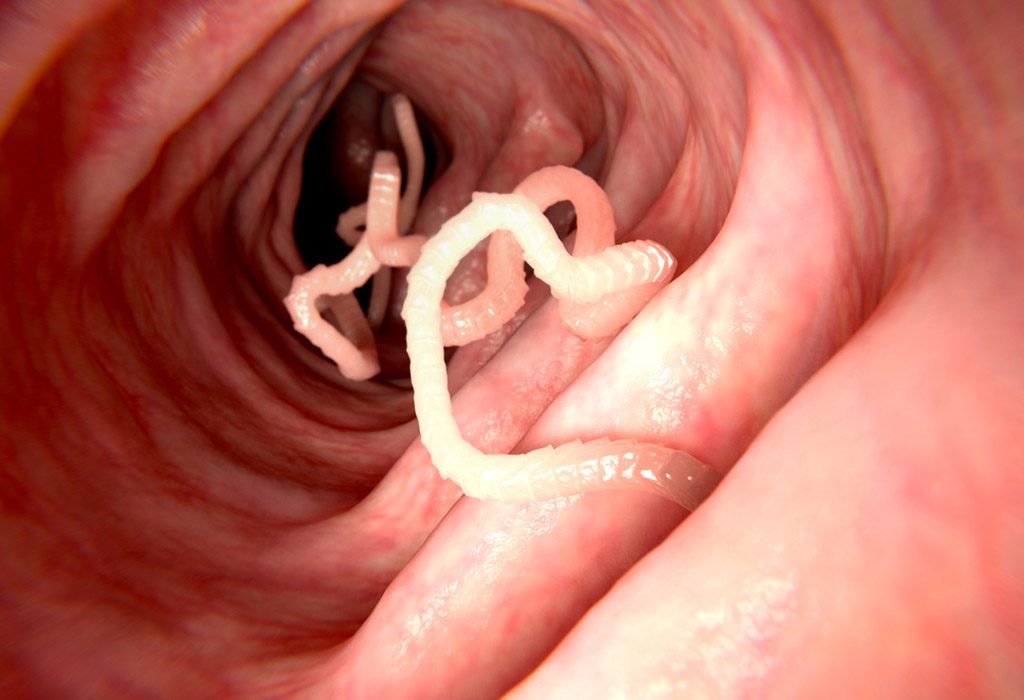Dogs, such as cats and even humans, can suffer from intestinal worms. These parasites cause gastrointestinal disorders that can be very uncomfortable for your puppy. In addition, they are very difficult to detect and, in some cases, we may not even know that our animal has worms.
For this reason, it is important to regularly deworm your puppy both internally and externally. Thus, it will prevent possible infestations in dogs or even contagion to humans in some cases.
- If you want to know more about this topic.
- In this article of Animal Expert we explain everything about the most common parasites that can affect your dog and other useful information to know how to treat them.
- Read on to learn all about intestinal worms in dogs.
Your puppy may be affected by both internal and external parasites. The first, which we will talk about in this article, are those that inhabit the digestive tract but can also be housed in organs such as the lungs or the heart.
External parasites include those that live in the dog’s fur or skin, such as fleas and ticks. Intestinal worms in dogs and external parasites, or those that infest the heart or lungs, cause damage to the animal from its activity.
Injuries will be more or less serious depending on the animal’s health and infestation level. Thus, parasitosis can be asymptomatic or, on the contrary, produce different clinical conditions. In all cases, worms in dogs should be prevented and treated, as there are also parasites that can also affect humans.
It is extremely important that guardians pay attention to intestinal worms in dogs, these are the most common:
The internal deworming of our dog should start early
It should also be noted that pregnant females and lactating puppies may become infected. If the mother is parasitized, the puppy will become infected from birth and this is very dangerous. Therefore, you should adequately deworm your dog during pregnancy and lactation.
While, as we have already said, the presence of internal parasites in dogs does not always generate a clinical picture, we indicate below the most common symptoms that we may notice when the infestation is significant or the dog is most at risk from a deficiency. immune system, such as puppies by immaturity, or in older or vulnerable dogs from illness or stressful situations, such as surgeries or changes.
Symptoms of intestinal parasites in dogs include
Young children are at risk because they are more likely to eat dirt and exhibit poor hygiene habits. Symptoms, which occur during large infestations of internal parasites in dogs, include abdominal pain or cough, as well as complications that will depend on the organ to which the larvae will reach.
Some hookworms are responsible for the so-called “migratory skin larvae” disease, which causes itching due to the penetration of their larvae into the skin. Because parasites can be shared and dogs do not become a source of contagion and vice versa, it is essential to establish an appropriate deworming program.
If you detect any of the symptoms described in your pet and are even able to see worms in their stool or vomiting, you should go to the veterinarian immediately. However, rather than treating infestations, we must avoid them. This way we will protect our dog and the whole family. Prevention, which will consist of a comprehensive deworming programme developed with the veterinarian, is essential for this. The professional will assess the age and habitat of the dog, the safety of the product and the route of administration.
It is possible to find syrups, pastes or, more conveniently, pills to eliminate intestinal parasites in dogs. However, always use the deworming prescribed by the veterinarian, otherwise we can cause canine poisoning and even aggravate a problem if there are no symptoms generated by internal parasites in the dog.
The recommendation is to follow a monthly deworming program that should start at two weeks of age and be maintained throughout your life. Because we love our pets, we guarantee that they are properly protected and dewormed.
In addition to internal deworming, to make the most of these parasites from the environment and thus avoid re-infection, measures such as:
More and more people are looking for natural remedies against worms in dogs, however, it is important to note that these types of therapies should also be prescribed by a veterinarian who will oversee the process and will not replace drug treatment. Its use can help prevent its onset, but once the infestation has occurred, it does not eradicate it completely.
Therefore, if you want to use certain home remedies to deworm dogs, it is important that you consult your trusted specialist and do not neglect the prescribed veterinary treatment.
This article is for informational purposes only, in Animal Expert.com.br we cannot prescribe veterinary treatments or make any kind of diagnosis. We suggest that you take your pet to the veterinarian in case of any type of condition or discomfort.
If you would like to read articles similar to Intestinal Worms in Dogs – Symptoms and Treatment, we recommend that you visit our Section Vermífuguga and Deworming.

